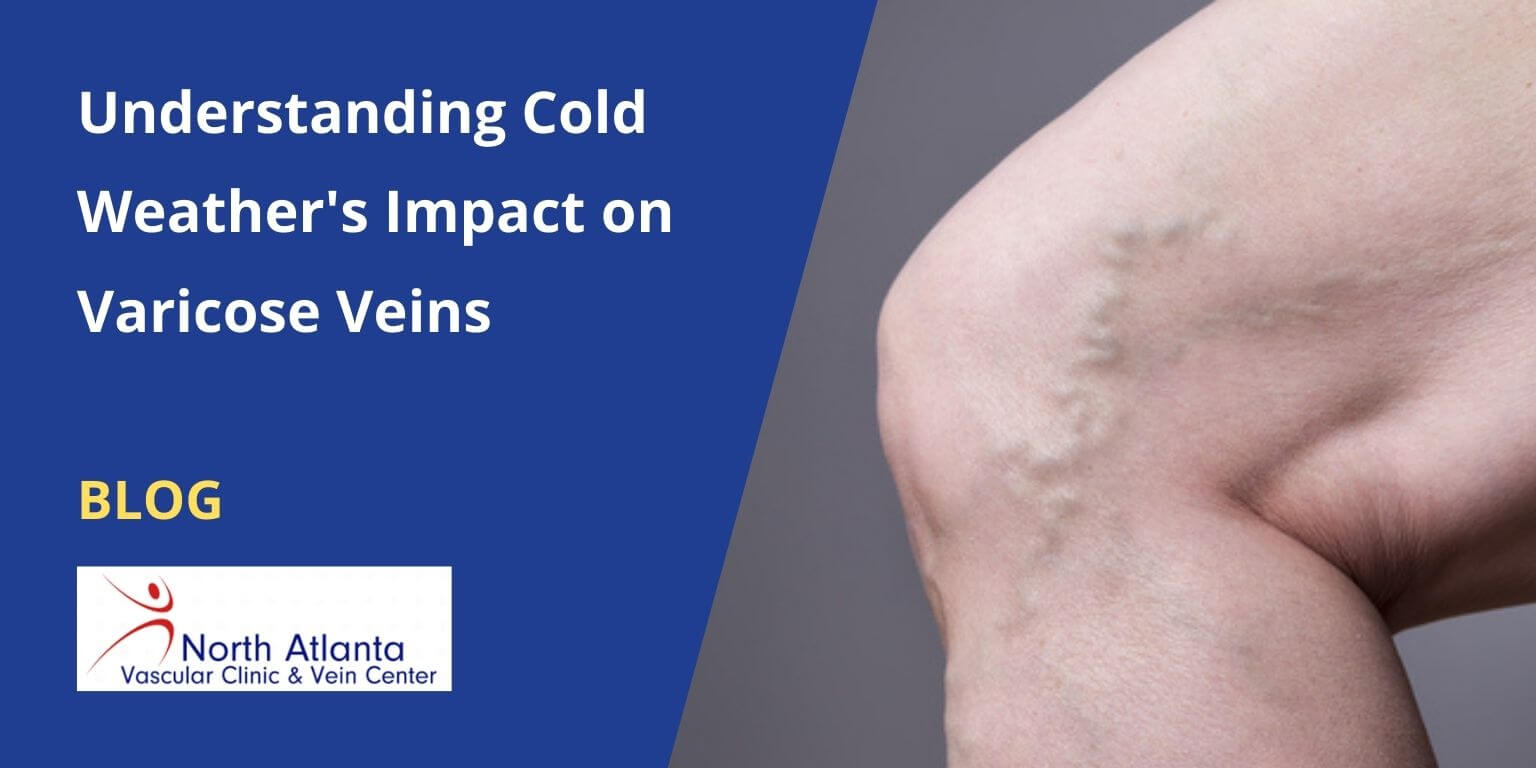



Varicose veins are a common circulation disorder marked by vein growth and twisting, most commonly in the legs. These veins are frequently large, bulging, and blue or dark purple. Varicose veins form when the vein valves that control blood flow back to the heart become weaker or damaged. This malfunction causes blood to pool in the veins, causing them to expand and become visible on the skin's surface.
The impact of cold weather on vein health for individuals with pre-existing circulatory conditions like varicose veins is a topic of interest and consideration. While cold weather may not directly cause varicose veins, it can exacerbate symptoms and contribute to discomfort. According to research, most people tend to have varicose veins surgery in cold weather.
Read on to learn more about varicose veins in cold weather.
Cold weather isn't all terrible news for people who have venous insufficiency. Varicose veins can tighten and shrink in cold conditions. This allows the valves within the veins to function more efficiently and prevents pressure from building up in the legs. As a consequence, varicose vein symptoms will occur less frequently. Varicose veins can also become less conspicuous in cold temperatures. Cooler temperatures can also alleviate the pain caused by varicose veins.
However, cold weather can also have adverse effects on varicose veins. When the muscles and blood arteries tighten, the heart must pump blood more quickly to warm the body. This movement puts strain on the veins. Inadequate blood circulation can also exacerbate pain and discomfort symptoms.
Winter can present specific challenges for individuals with varicose veins, as the colder temperatures and environmental factors may increase symptoms or discomfort associated with this venous condition. Here are some winter-specific challenges for those with varicose veins:
Regular physical activity is essential for promoting healthy blood circulation. Engage in activities like walking, swimming, or indoor exercises to prevent varicose veins. Staying active enhances blood flow, reduces venous stasis, and strengthens the calf muscles, which aids in pumping blood back to the heart.
Compression stockings provide graduated pressure, helping to improve venous return and reduce symptoms like swelling and discomfort. Wearing compression stockings supports weakened veins, minimizes swelling, and promotes better blood flow, especially during prolonged periods of standing or sitting.
Dress in layers to stay warm, and ensure clothing is not overly tight. Warmth helps minimize vasoconstriction and promotes comfort. It reduces the impact of cold-induced vasoconstriction and maintains a comfortable temperature for the extremities.
Cold weather can reduce the sensation of thirst, leading to dehydration. Maintain adequate fluid intake to prevent blood from thickening. Hydration supports optimal blood viscosity, preventing sluggish blood flow and reducing the risk of clot formation.
Treatment choice depends on the condition's severity, symptoms, and individual health factors. Here are various options for varicose veins treatment:
A minimally invasive procedure involving the injection of a sclerosing agent into the affected vein. In this process, the sclerosing agent irritates the vein lining, causing it to collapse and close. Next, the blood is then rerouted through healthier veins. It is effective for smaller veins and cosmetic improvement.
A procedure using laser energy to heat and close off varicose veins. In this process, a thin laser fiber is inserted into the vein through a catheter. Next, laser energy is applied, causing the vein to collapse and seal. This is a minimally invasive procedure with high success rates.
This is a surgical procedure for treating advanced cases, particularly when ulcers are present. In this, a thin tube with a camera (endoscope) is inserted to visualize and treat the vein. Next, the vein is either tied off or removed through small incisions. This treatment helps address complications like venous ulcers.
Winter has pros and cons for those with varicose veins due to the cold tightening vein walls, increasing pressure on the veins, and making a person less active. At the same time, it's the best time to seek treatment. At North Atlanta Vascular Clinic, we have a specialized team of varicose vein doctors. They will first diagnose you. Next, based on your condition and health, the specific treatment will be used to treat your varicose veins.
At North Atlanta Vascular Clinic, we provide comprehensive yet personalized varicose veins treatment for people suffering from this condition, especially during cold weather, alleviating the symptoms and performance limitations. Contact us today to learn more about our services.